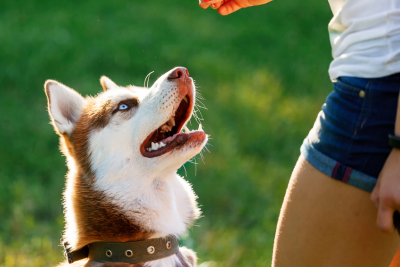Training a dog is never easy but there is a path to success! Below are 10 basic dog training tips to get started. Remember you must be "trained and disciplined as well!
- Start Early: Begin training your dog as early as possible. Puppies are like sponges, and early training helps set the foundation for good behavior and obedience throughout their lives.
- Positive Reinforcement: Use positive reinforcement techniques, such as treats, praise, or play, to reward and reinforce desired behaviors. Dogs respond well to positive reinforcement, and it helps strengthen the bond between you and your furry friend.
-
Consistency is Key: Be consistent in your commands, rewards, and rules. Dogs thrive on routine, and consistency helps them understand what is expected of them. This applies to everyone in the household to avoid confusion.
-
Short, Engaging Sessions: Keep training sessions short and engaging. Dogs have a shorter attention span, so aim for sessions that are around 5-10 minutes long. End on a positive note, even if it means a simple command your dog already knows.
-
Patience and Persistence: Training takes time, and every dog learns at its own pace. Be patient and persistent, and don't get frustrated if progress is slow. Stay calm and positive during training sessions.
-
Use Clear and Simple Commands: Keep commands clear, concise, and consistent. Dogs respond better to simple commands, so avoid long sentences. Use the same word for a specific action, and ensure everyone in the household uses the same commands.
-
Socialization is Crucial: Socialize your dog from an early age. Expose them to different environments, people, and other animals. Proper socialization helps prevent behavioral issues and ensures your dog is comfortable in various situations.
-
Understand Canine Body Language: Learn to read your dog's body language. Understanding how your dog communicates through body language helps you respond appropriately and build trust. It also aids in identifying signs of stress or discomfort.
-
Leash Training: Teach your dog proper leash manners. This is essential for both your dog's safety and the comfort of others. Use positive reinforcement to reward loose leash walking and discourage pulling.
-
Regular Exercise: Ensure your dog gets regular physical and mental exercise. A tired dog is generally a well-behaved dog. Engage in activities such as walks, playtime, and puzzle toys to keep your dog stimulated and happy.
Remember that each dog is unique, and what works for one may not work for another. Tailor your training approach to your dog's individual personality, and always prioritize their well-being and positive reinforcement over punishment.

